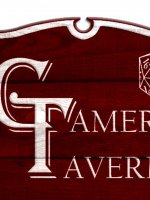Wizards of the Coast posted the seventh playtest packet for the 2024 update to Dungeons & Dragons. The new playtest packet includes updated class material for the Barbarian, Fighter, Sorcerer, Warlock, and Wizard classes.

Highlights for each class:
Barbarian
Fighter
Sorcerer
Warlock
Wizard
The official Dungeons & Dragons YouTube account also posted an almost 90-minute-long video doing a deep dive on the playtest packet.
Highlights for each class:
Barbarian
- New Path of the World Tree subclass and updated Berserker, Wild Heart (formerly Totem Warrior), and Zealot subclasses.
- Attack recklessly for a full round rather than just one turn.
- Path of the Wild Heart (formerly Path of the Totem Warrior) has updated options.
- Brutal Critical gets damage buffs.
Fighter
- New Brawler subclass excels at using improvised weapons and unarmed strikes.
- Tactical Mind and Tactical Shift expand the use of Second Wind.
- Studied Attacks grants advantage on an attack roll against an enemy after you've missed an attack against them.
- Battle Master and its maneuvers have been updated.
Sorcerer
- Innate Sorcery empowers your spellcasting for a limited time.
- Sorcery Incarnate and Arcane Apotheosis boost your Metamagic while Innate Sorcery is active.
- Sorcerous Restoration is available at 5th level and scales with your sorcerer level.
- Wild Magic Sorcery now more reliably allows you to roll on the Wild Magic Surge table.
Warlock
- Pact Magic is back.
- Eldritch Invocations are now available at 1st level and your options have been revised.
- Pact Boons are now invocations, and Mystic Arcanum is once again a class feature.
- Patron Spells are always prepared.
- Updated Archfey Patron, Celestial Patron, Fiend Patron, Great Old One Patron subclasses.
Wizard
- Spellcasting feature now allows you to swap out a cantrip each long rest.
- Memorize Spell is now a feature. Modify Spell and Create spell have been nixed.
- Updated Abjurer, Diviner, Evoker, and Illusionist subclasses.
The official Dungeons & Dragons YouTube account also posted an almost 90-minute-long video doing a deep dive on the playtest packet.



